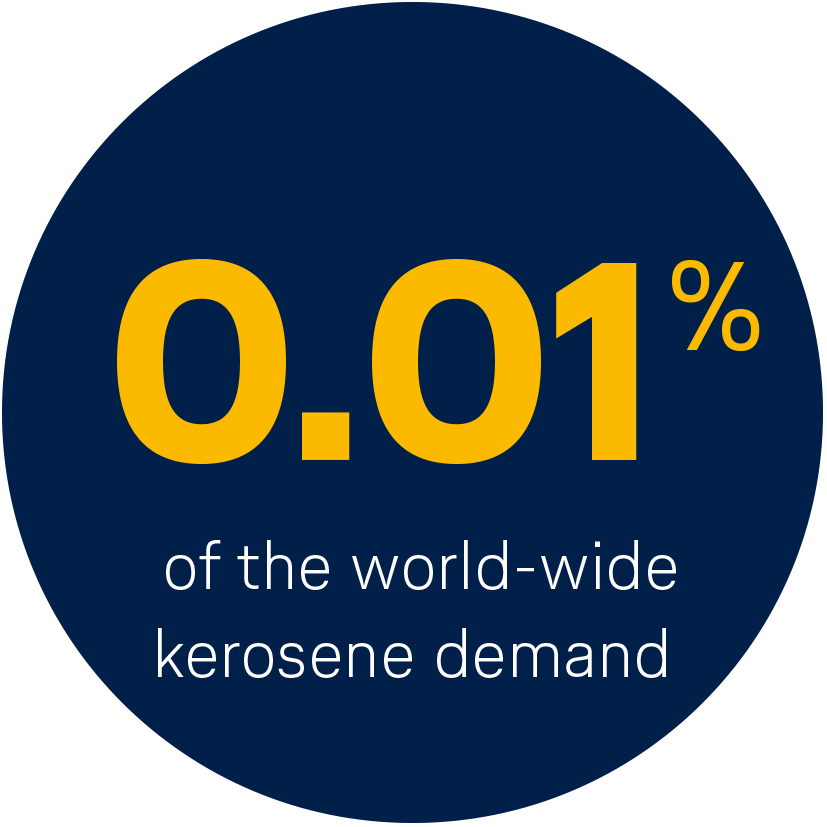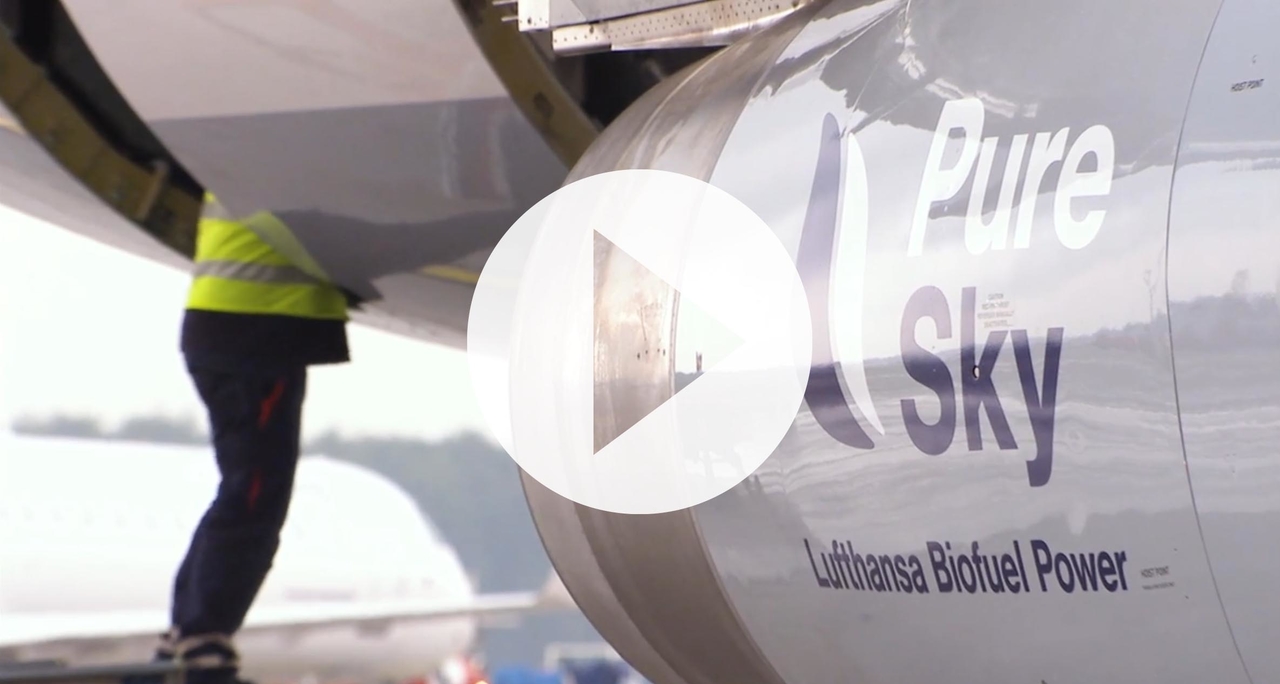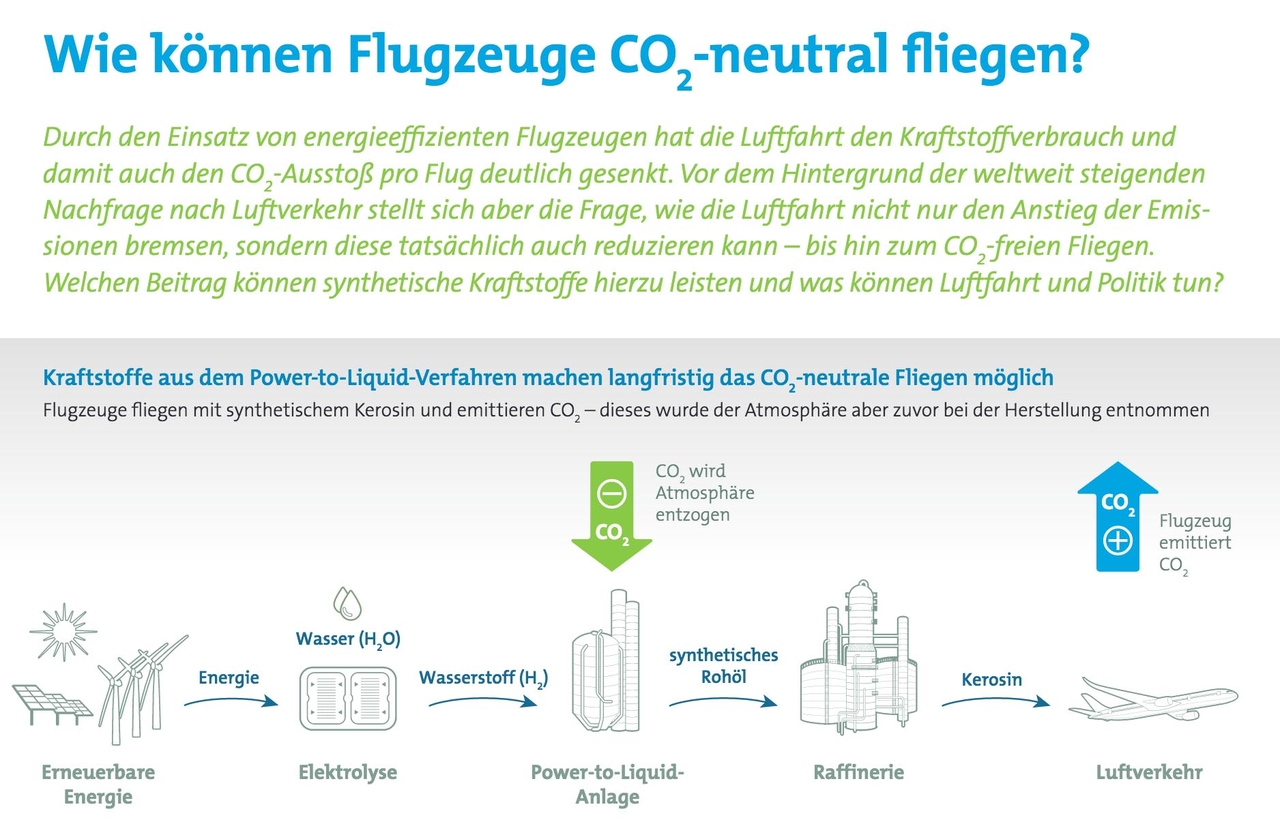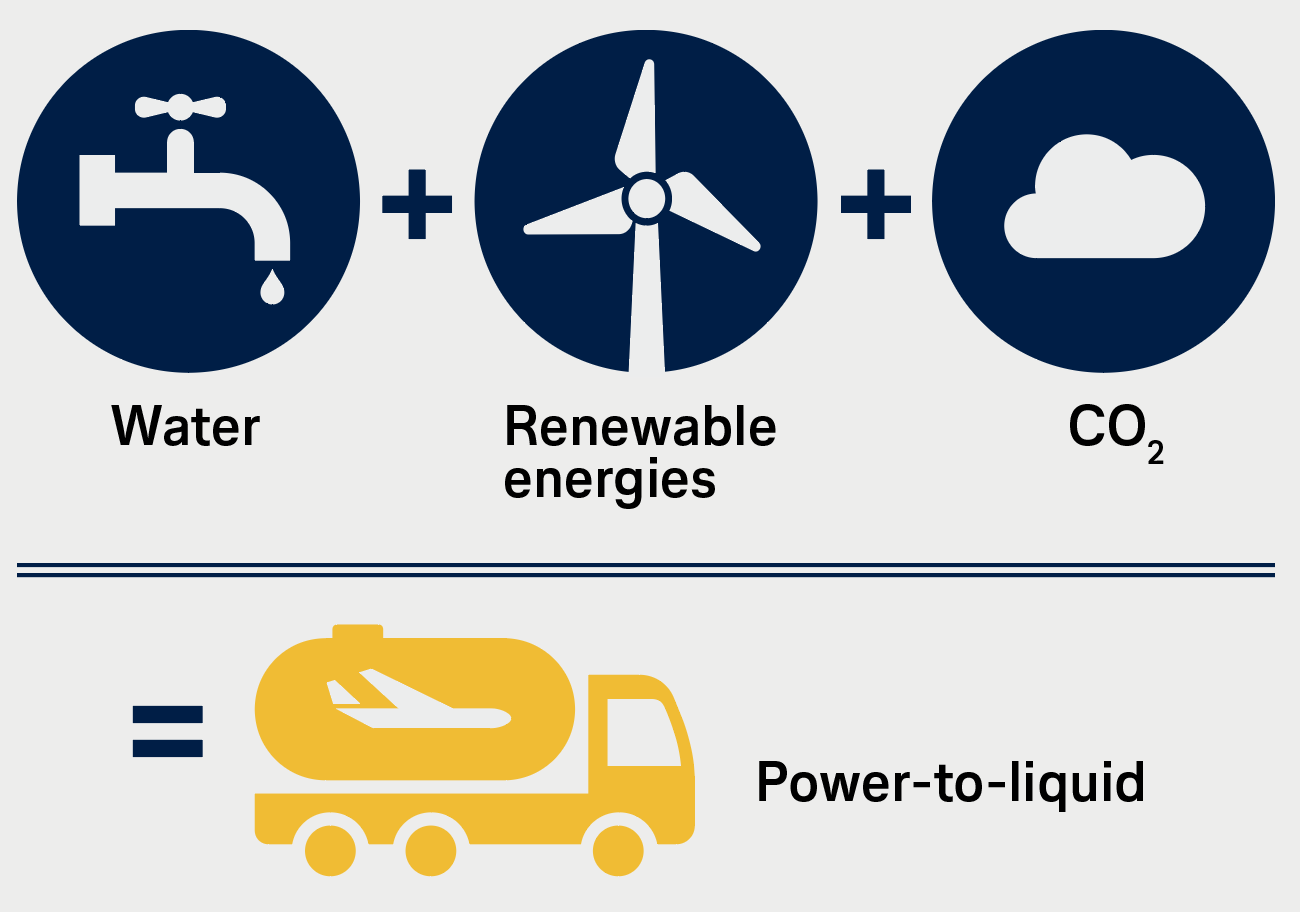Climate-friendly kerosene
When will we take off into the future?
Kerosene does not have to be harmful to the climate. With sustainable aviation fuels (SAF) it is possible to achieve CO₂ neutral flight in the long term. For this reason, they are decisive for climate protection in aviation. We would like to fill up with more synthetic fuel rather today than tomorrow. For this, we need powerful political support. The latest resolutions lag far behind what is needed.
Develop production capacities
Sustainable aviation fuel can currently only cover 0.01% of the world-wide kerosene demand and is clearly more expensive than standard kerosene.

Tank alternative fuels today with Compensaid
Since the end of August 2019, travellers can mostly replace fossil fuels with SAF via the compensation platform www.compensaid.de or directly when booking a Lufthansa flight. They are used on Lufthansa flights within six months.
First projections
Wind power, water, and CO₂ – removed from the atmosphere – are sufficient to generate green aviation fuels in the co-called “power-to-liquid” process (PtL). What sounds like a vision of the future, is actually being driven forward in many places in Germany: In mid-August, the Karlsruhe Institute for Technology (KIT) opened the first integrated PtL trial plant in the world. The Heide refinery is building a PtL facility in a real lab together with partners. Lufthansa will be the first customer. At the latest in 2024, 5% of the fuel that we tank at Hamburg Airport will be synthetically manufactured kerosene. Hesse wants to become a pioneer in the fuel reform in aviation. Hesse’s state government has announced that it will invest significantly into research of electricity-based fuels. A power-to-X competence centre will be created in Brandenburg. Here, too, Lufthansa is a partner.
Now it’s up to politics
At the moment, only smaller quantities of synthetic fuels are available and are so expensive that they are hardly usable. It is important to make the jump to industrial production. The world of politics has committed to this goal repeatedly, most recently in mid-November at the Power-to-X Conference of the Ministry of the Environment. Now they have to back up these words with action:
- Developing strategies: In the Leipzig Declaration, Germany’s Federal Government and the federal states have agreed to develop a PtL road map together with the industry. We are there as a partner with our expertise.
- Increasing funding: The Federal Government has promised € 100 million each year for 2020 and 2021 for alternative drives and fuels. Compared to the € 2 billion that the aviation tax is supposed to generate soon, this is a very humble amount. The funding should urgently be increased.
- Starting internationale initiatives: Germany has the opportunity to take on a world-wide leadership position in this field. Beyond national ventures, we need an international plan to develop production plants and provide regenerative fuels at competitive prices. At the moment, PtL fuels are still up to five times as expensive as regular kerosene. For this reason, the requirement for a mandatory fuel-mix quota is only possible on the global level. National regulations would massively distort competition.
Develop production capacities
Sustainable aviation fuel can currently only cover 0.01% of the world-wide kerosene demand and is clearly more expensive than standard kerosene.

Tank alternative fuels today with Compensaid
Since the end of August 2019, travellers can mostly replace fossil fuels with SAF via the compensation platform www.compensaid.de or directly when booking a Lufthansa flight. They are used on Lufthansa flights within six months.
Further content on the topic
Clip
Sustainable Aviation Fuel
Sustainable Aviation Fuel – SAF for short – can be used in aircraft without any problems, and is a real alternative to fossil kerosene. Find out more in the new fact check video.

Aviation news
How can you make aircraft CO₂-neutral?
How can aviation actually reduce its emissions – right down to CO₂-free flying? How can synthetic fuels contribute to this and what can the aviation industry and policy-makers do? A brief overview from the German Aviation Association.

